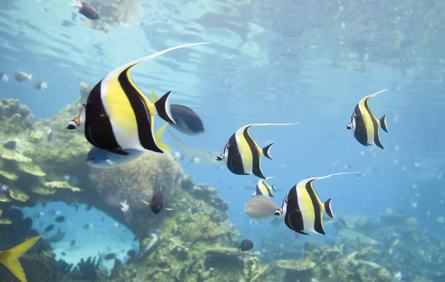Module 4 Intro
1. Module 4 Intro
1.12. Lesson 2 Intro
Module 4—Properties of Solutions
Lesson 2—Dissolving Substances
 Get Focused
Get Focused

© Ian Scott/shutterstock
All organisms require clean water in order to survive. Have you ever tried to keep tropical fish? The chemistry of successfully maintaining an aquarium—especially a saltwater aquarium—is underestimated by most people who have not had to maintain one.
To properly manage an aquarium, you must test the water’s composition of dissolved substances. Some of these substances include
- chlorine
- ammonia and nitrites
- phosphates
- oxygen
- salt (only in a saltwater aquarium)
If you wish to know more about aquarium water quality, read here.
In this lesson you will learn why substances dissolve in water. You will also learn that aquarium chemistry provides valuable insight into the role of dissolved substances in delicate natural ecosystems.
Essential Questions
- How did Arrhenius contribute to the understanding of electrolytes, acids, and bases?
- What does it mean to dissolve a substance?
- What role does energy have in the dissolving of a substance?
 Assessment
Assessment
There is no Module 4: Lesson 2 Assignment.
In this lesson you will continue your work on the two Proactive Citizen Projects listed in the Module 4 Summary and Assessment document. The topics and a scoring guide are available in the Module 4 Summary and Assessment document.
You must decide what to do with the questions that are not marked by the teacher.
Remember that these questions provide you with the practice and feedback that you need to successfully complete this course. You should respond to all the questions and place those answers in your course folder.